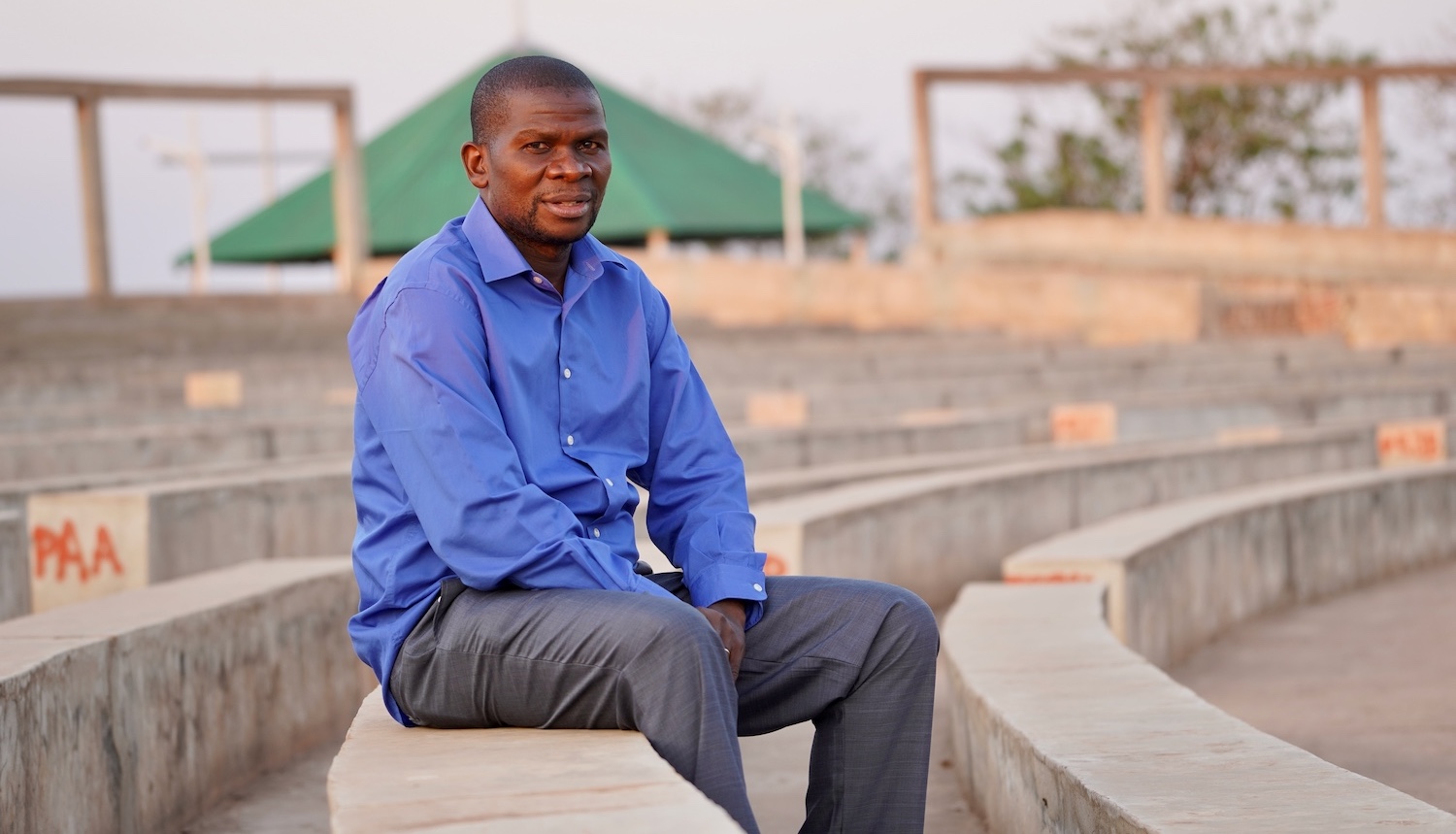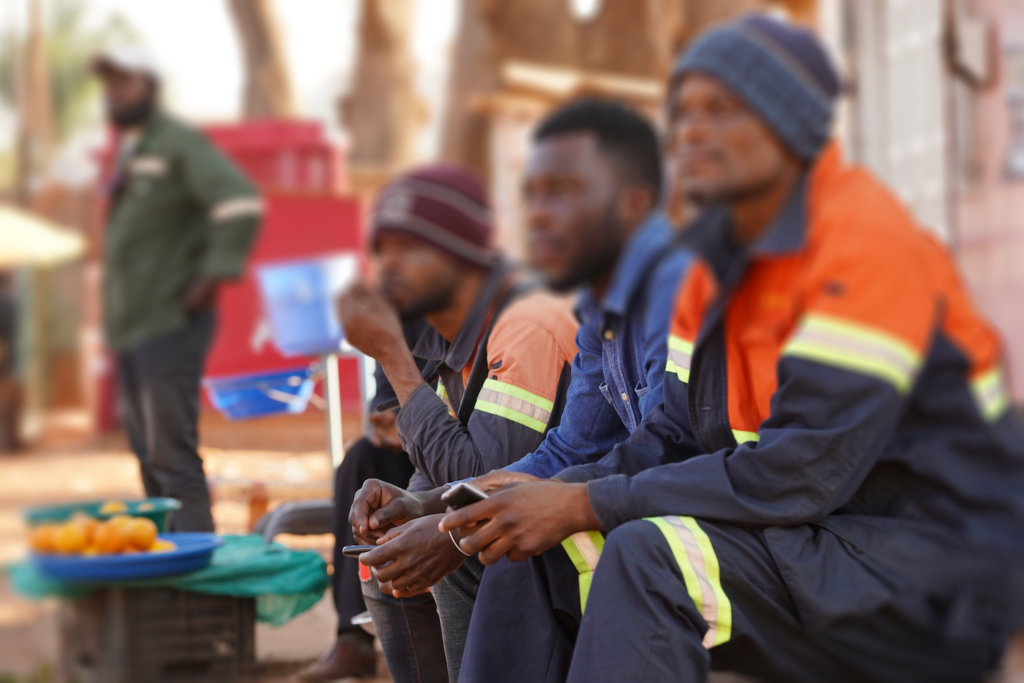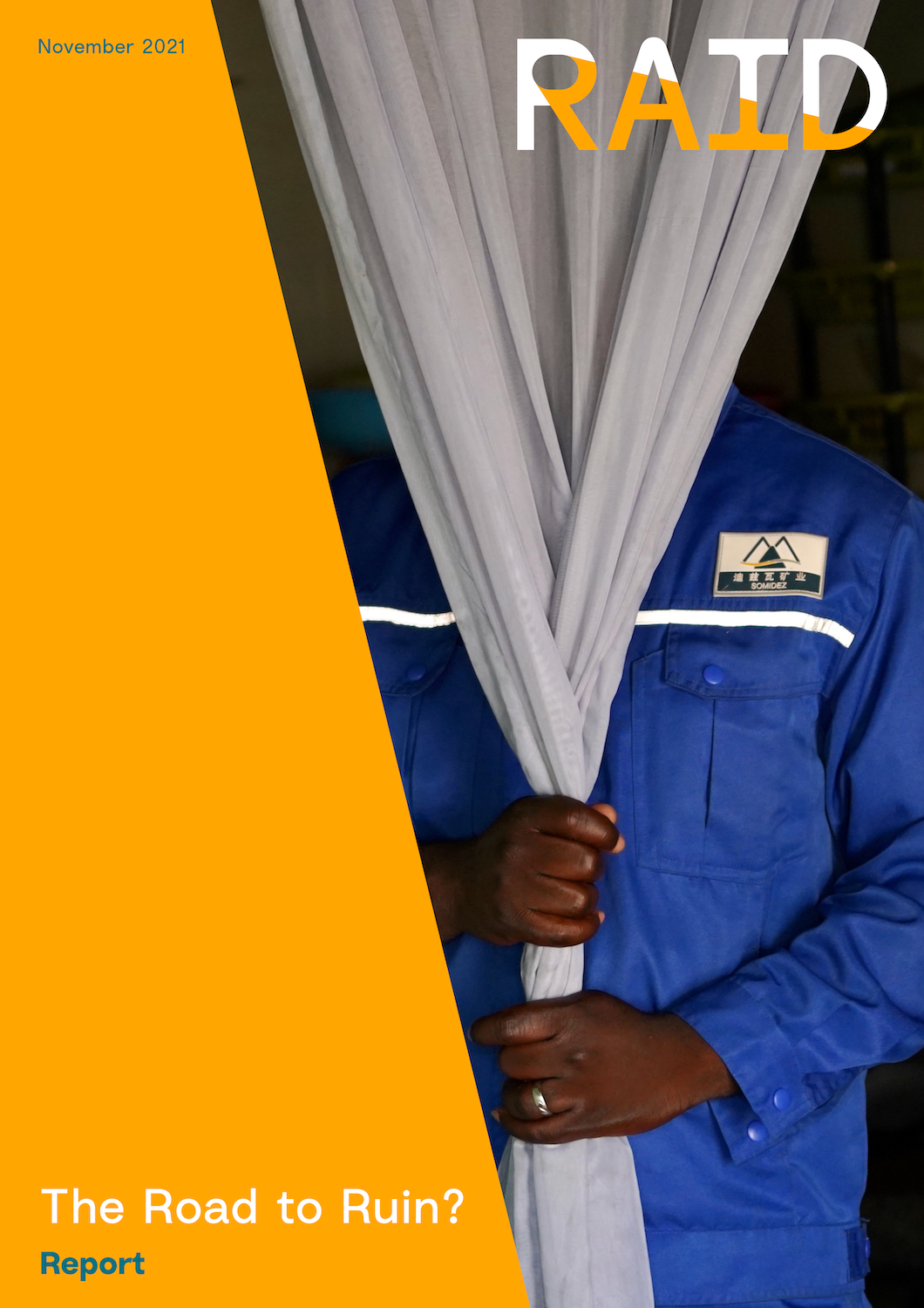Hundreds of mining executives, investors and politicians gathered at Africa’s 2024 Mining Indaba in Cape Town this month to discuss “positive disruption” in the mining industry. The buzz left no doubt that companies are latching onto huge opportunities from the rising demand in critical minerals needed to propel the energy transition. But there are also immense challenges, especially for the thousands of industrial mine workers who extract the minerals and are laying the groundwork for the energy transition. Will they benefit from the “disruption” that was celebrated at the Indaba?
Recent legal challenges by workers against companies operating in the cobalt sector in the Democratic Republic of Congo (DRC) show signs that workers are beginning to demand a change in corporate behaviour. Together with tenacious lawyers, mine workers are using national laws against companies who fail to respect labour rights. And they are winning.
Exploited workers at the forefront of the energy transition
Cobalt, primarily found in DRC, is a critical mineral that makes up part of the lithium-ion battery used in electric vehicles. In 2021, research conducted by legal aid group, Centre d’Aide Juridico-Judiciaire (CAJJ) and corporate watchdog RAID exposed dire conditions, discrimination and extremely low pay at some of the world’s largest industrial cobalt mines. The conditions were worse for those hired through subcontractors, who make up a staggering 57% of the workforce. Not only are many earning well below the living wage of $480 per month, they also reported excessive working hours, unsafe working conditions, no paid leave, and a disregard for basic health provision.

Cobalt, primarily found in DRC, is a critical mineral that makes up part of the lithium-ion battery used in electric vehicles.
DRC workers fight back in court
Emerging from the landscape of these workers’ rights concerns are exciting new legal challenges. Workers are putting Congolese labour law to the test against multinational mining companies and their subcontractors. Led by workers, and supported by CAJJ and RAID with assistance from the SAGE Fund and the Freedom Fund, these strategic litigation challenges in DRC courts are demanding that companies uphold labour law and stop worker exploitation.
Here are 5 key legal cases in DRC making a difference:
CASE 1: A win for union representation
Subcontractor at Sicomines / Direct employees at Somidez
In 2022, CAJJ, on behalf of workers, initiated a landmark legal action on the rights of workers to unionise. The case against Bangde Construction SARL (a subcontracting company of Sicomines, jointly owned by Sinohydro Corp, China Railway Group and the Congolese government) exposed Bangde Construction’s failure to permit the election of trade union delegates. The company said Covid-19 health & safety rules and a government decision on union elections prevented it from holding the elections, excuses it continued to use despite the end of the pandemic and a government instruction setting election dates for early 2022.
CAJJ intervened, requesting the Public Prosecutor to instruct the Labour Inspectorate to examine the mine site for violations of the Congolese Labour Code. The report that followed, and the pressure from the legal case, resulted in the company finally organising union elections in May 2023.
A similar legal action was also used against Société Miniere De Deziwa (Somidez), a joint mining venture between the China Nonferrous Metal Mining Group and Gécamines, the Congolese state mining company. As a result, Somidez also subsequently organised union elections. Both cases represent an important success for workers seeking to raise standards through unions.
CASE 2: Injured worker sues for medical treatment
Subcontractor at La Minière de Kalukundi SA (LAMIKAL)
This case was directed against the LAMIKAL mine, majority owned by China’s Wanbao company, and against its subcontracting company BALTO. A security agent working with BALTO was seriously injured when he was shot in the leg during an attempted robbery at the mine site. His leg was later amputated in hospital, but BALTO failed to pay his medical expenses of $9,650 (USD), despite Congolese law stating that an employer is responsible to cover costs for injuries sustained at work. The hospital refused to continue treatment until the full bill was paid.
In February 2023, CAJJ submitted a complaint to the Prosecutor’s Office against both LAMIKAL and BALTO. The prosecutor summoned the two directors of BALTO to appear for questioning. When they failed to turn up, he issued an arrest warrant, which resulted in BALTO quickly paying the medical bill for its employee. The case was concluded in July 2023.

Josué Kashal, lawyer and manager at CAJJ
CASE 3: Compensation order for unlawful termination of employment
Congo Invest Corporation (CIC), subcontractor at Glencore’s Mutanda (MUMI) mine
On 28 October 2022, the Kolwezi Labour Tribunal decided on an individual case brought by CAJJ against CIC, a then subcontractor at Glencore’s MUMI mine. CIC allegedly unlawfully ended the contract of more than 100 workers and failed to pay salaries when the mine was temporarily closed under ‘care and maintenance’ between 2019-2021. CIC said that it had been instructed by MUMI to reduce its workforce because of the Covid-19 pandemic, but this defence was dismissed by the Labour Tribunal. CIC was ordered to pay $9,000 in compensation to the impacted worker, setting an important precedent for the other workers. CIC is appealing the decision.
CASE 4: Challenging inhumane conditions and degrading treatment
Kalongwe Mining S.A.
In November 2022, CAJJ brought one of the first ever complaints before the Prosecutor’s Office at the Lualaba Court of Appeal for degrading treatment and inhumane conditions at an industrial mine. The case against Kalongwe Mining, majority owned by China’s Chengtun Mining, was brought by 10 workers who requested anonymity in the proceedings for fear of retaliation or of losing their jobs. The workers highlighted inhumane conditions at Kalongwe Mining, including precarious health and safety conditions and degrading treatment based on discrimination and racism, including physical attacks and verbal insults. The case is ongoing.
CASE 5: Class action on widespread violations of the labour code.
Elias & Matis Trading SARL, subcontractor at Glencore’s KCC mine
In this new class action launched in November 2023, a group of workers represented by CAJJ filed a claim against subcontractor Elias & Matis Trading, which operated at Glencore’s Katanga Copper Company mine. The subcontractor is accused of widespread labour law violations, including blocking unionisation, lack of medical benefits, unlawful firing of workers, and failure to provide administrative documents such as payslips. The class action is in progress.
These legal cases demonstrate that workers are not waiting for companies to voluntarily act in the best interest of local communities. Instead, they are putting their own national laws to the test and showing that workers can help lead the drive for a just transition.
Mining executives and government officials should sit up and take notice. This is the kind of “positive disruption” that is needed for a transition away from fossil fuels which benefits everyone, not just those at the top.


